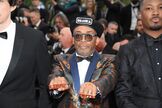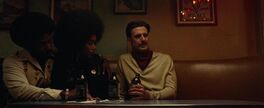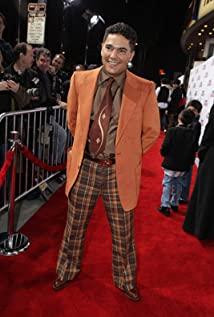If in Alfonso Cuaron's "Roma", the presentation of the aborigines at the bottom is still only from the director's own class perspective, then "BlacKkKlansman" is undoubtedly a black film that speaks from a purely black perspective - "Spike Li is a white man in black skin, and a black man who speaks white English!" The pain of the nanny in "Roma" is numb and restrained. Sexual blows come to the body, and only if it is swallowed can it dissolve and survive. She is an aboriginal and marginalized group in an ideal state. She is docile and kind. She can not only share the housework, but also take care of the feelings of the customers. She can even show her own and fraternity value by saving the master's children. And the person who speaks for her numbness and pain only bears the perspective of the upper class. The death and class solidification of aboriginal culture are presented in a form of accomplice rather than opposition. Regarding her real thinking and real way of living, she is just an empty shell in fantasy, a speechless and chosen other. Like the lumberjack in Bellini's painting, the truly tragic reveal is that he doesn't know and doesn't speak up.
The black police officer in the small town got through the recruitment call of the KKK with a prank mentality, imitating the white accent, telling how he hated black people, but he did not expect to be recruited into the KKK organization, and completed a series of absurdity with a hidden Jew A bizarre counter-attack. The whole film is extremely touching, whether it is playing politics, film history or playing audio-visual skills. After all, Spike Lee is essentially an excellent type commercial director. As the dark horse most likely to hit the Oscars this year, the story of "BlacKkKlansman" seems to be wrapped in comedy, and the belated revelation of black people's indignation after a hundred years - exposing the 1915 "Birth of a Nation", a film written by white people An evil movie that occupies a classic place in history. Griffith's "The Birth of a Nation" is undoubtedly the originator of any film history, using the "parallel montage" technique and "last minute rescue" for the first time to endow the film with the myth of ideology The role has given the film a soul and a huge social influence: "The film has become political, and it has become a pen and paper."
Originally, I heard the teacher talk about "The Birth of a Nation" in the film and television appreciation class, and there were also extremely politically incorrect comments about the film: the origin of the name of the Ku Klux Klan, and fragments of the uglified image of black people are still vivid in my mind. Once the history of film was written by white "parents", the black marginalized people who have been liberated from the domination of "parents" today remain in their chosen position for the sake of becoming a group defined by the public, like OJ Simpson. The "good black" positioning. Is it possible to have a black movie without the demonization of "black exploitation" and the perspective of white parents to satirize Griffith and his "The Birth of a Nation"? 2018's "BlacKkKlansman" did it, using a pure black perspective, using white language, whether the language is abstract language or audiovisual language, to complete a perfect rejection of narrow and evil racism. "One of the benefits of the oppressor's oppression is that the most mediocre among them also feel superior to others." What is revealed is the essence of Spike Lee's removal of various stereotypes and no definition of "black": "All discrimination begins with these definitions and pretense, take them off, and everyone inside may not be much different. ."
The second half of the film perfectly uses the audio-visual creation of "The Birth of a Nation" as a fulcrum, represented by David Griffith's racial stance, through his most traditional and famous parallel montage and "The Last One" Minutes to Rescue" was used and ridiculed twice: a parallel montage of a black anti-KKK rally to reveal the history of the massacre and a parallel montage of the KKK rally to watch "The Birth of a Nation" in one timeline - "One side is heavy The origins of history are traced back, and the other side is the carnival of racist demons." The classic method of interspersed and contrasted black and white power can also perfectly impact genre movie audiences who have developed modern movie viewing habits. Using white language to satirize the white group, and using the most traditional but effective montage to perfectly parallelize the dual identities of film as a mass entertainment and a political tool, it also returns to its origins, which is precious and respectable.
It is also a matter for the image, as the most popular propaganda medium, to assume the identity of a political weapon, which also happens to be the technique of white ideological writing embodied in the film. When the Steadicam lens slipped into the Trump era, just like "Captain Sully" or "The Terrorist Attack on Boston" in this year's hot American patriotic movie, Spike Lee also unsurprisingly used the most emotionally stimulating film. And the documentary video of political nerves, to once again emphasize that the whole film is adapted from real events. And the skills of black and white friendship (please allow me to save the word count in this way) are not blunt and nauseating at all, nor are they full of incomprehensible indignation like "Crash", good film, say it again, good film.
View more about BlacKkKlansman reviews











